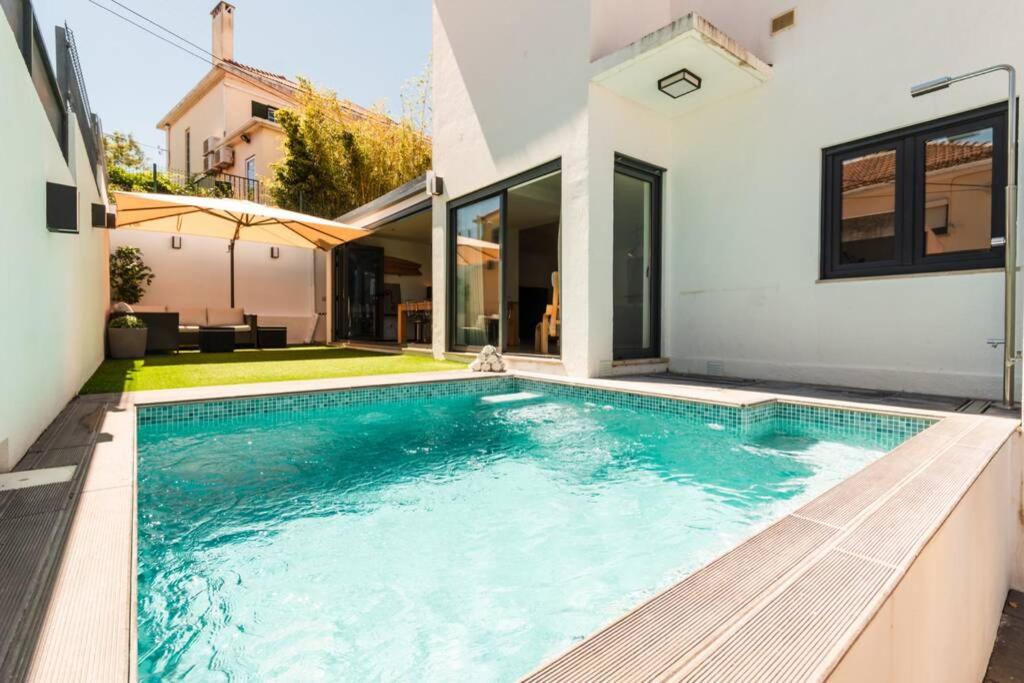
How to Find a Leak in Above Ground Pool: Simple Steps?
Share
Above ground pools are a fantastic way to enjoy summer, but they come with their own set of challenges. One of the most frustrating issues pool owners face is leaks. Knowing how to find a leak in above ground pool can save you time, money, and a whole lot of water. In this article, we will dissect the methods and tools you need to locate and fix these pesky leaks, especially aimed at tech professionals and enthusiasts.
Before diving into how to find a leak in your above ground pool, lets explore why leaks are a problem. Leaks can lead to significant water loss, increased bill costs, and potentially damage your pool structure and surrounding areas. For tech experts, understanding the intricacies of pool mechanics and structures can be critical in efficiently managing their pools.

Common Signs of a Leak
Identifying a leak often starts with recognizing the signs. Below are a few common indicators that something may be amiss:
- Water Level Drops: If you notice that the water level in your pool is dropping significantly faster than usual, it could be a sign of a leak.
- Wet Spots: Look for areas around the pool that are constantly wet or muddy; this can indicate water escaping from the pool.
- Increased Chemical Usage: If you find yourself adding chemicals more frequently, it might be due to leaking water.

Using Basic Tools to Detect Leaks
Once you've determined that you may have a leak, the next step is to locate it. Heres how you can proceed:
Water Test
The first thing you can do is the classic bucket test. This involves placing a bucket filled with water by the side of the pool. You can now measure the water in the pool, versus the water level in the bucket over 24 hours. If the pool water level drops significantly more than the bucket, you likely have a leak.
Visual Inspection
Conduct a thorough inspection of the pool liner. Look for visible **tears**, punctures, or areas that appear to be bulging. Pay special attention to corners and where the liner meets the pool wall.
Pressure Testing
For those who love tech gadgets, a more sophisticated method to find leaks is through pressure testing. By using a pool leak detection service, technologists can apply pressure to plumbing lines and detect leaks using specialized equipment.

Advanced Techniques for Leak Detection
If youre dealing with a stubborn leak that traditional methods can't locate, consider some of these high-tech solutions:
Ultrasonic Leak Detection
This method involves using ultrasonic gadgets that convert sound waves into an audible tone. It takes advantage of high-frequency sounds produced by escaping water to help pinpoint the location of a leak.
Thermal Imaging
Utilizing infrared thermal imaging cameras can also help in locating leaks in pools. This technique identifies the temperature variations caused by water loss, providing you with clear visual indications of where the leak might be happening.
Professional Help
Sometimes, you might have to call in the experts. Professional pool technicians have specialized equipment and experience that can pinpoint leaks faster than DIY methods.

Common Leak Locations
Understanding common leak locations can be beneficial. Here are areas to inspect:
- Liner Seams: The seams where the liner is joined can often be the first places to examine.
- Skimmer Box: Inspect where the skimmer is attached to the pool wall as this is a common leak point.
- Returns and Lights: These areas are also popular spots for pools to develop leaks.
Preventing Future Leaks
After resolving the leak, consider these preventative measures to ensure your pool stays in optimal condition:
- Regular Inspections: Make it a habit to check your above-ground pool regularly for signs of aging or wear.
- Upgrade Equipment: Consider investing in a better quality pool liner or seals that can withstand the test of time.
- Routine Maintenance: Regular cleaning and chemical balancing can help protect the integrity of your pool structure.
When to Call Professionals
Not every situation can be handled alone. If youre finding it hard to detect the leak despite your best efforts or if your pool requires extensive repair, it is wise to consult with professionals. They can also assist with more technical methods or discrepancies that you may not have tools for.
Final Tips for Above Ground Pool Owners
Keep an eye on your pool water level and look out for signs of distress. Simple routine checks can save you from larger problems down the line. Additionally, if youve just set up your pool, make sure the installation was done properly to minimize risks of leaks.
For further reading, check out helpful posts on related topics like winterizing your pool and pool vacuum setup.
FAQs
1. Can I fix a leak in my above ground pool myself?
Yes, many small leaks can be fixed with patches or sealants available at pool supply stores.
2. How much water loss is considered normal for an above ground pool?
A 1 inch loss per week is typical due to evaporation and splashout. If it's more, you should investigate.
3. Should I cover my above ground pool in winter?
Yes, proper winterization can help protect against water loss and potential leak issues.
As an Amazon Associate, I earn from qualifying purchases.
